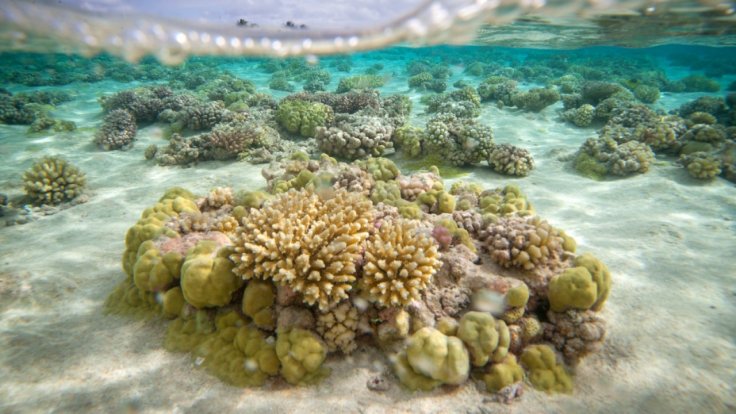
Global warming is forcing coral reefs to now shift to upwelling zones, areas where cold and deep water comes up to the surface, as warmer areas that historically promoted fast coral growth are now becoming intolerably hot, a study said.
Research by scientists from Florida Tech revealed ocean warming was shifting coral reefs from warmer areas to cool waters that were earlier too cold to promote thriving coral populations.
The collaborative effort among ocean scientist Rich Aronson from Florida Tech and colleagues at the Australian Institute of Marine Science (AIMS), the United States Geological Survey (USGS) in St. Petersburg, Florida, and other institutions revealed in the journal Ecology that upwelling zones could counteract the effects of a rapidly warming ocean as cooling, especially during super-hot El Niño events like the one in 2015–2016, provided some relief.
"High temperatures disrupt the delicate balance between corals and the single-celled algae that live inside them and provide them with food," explained Carly Randall, lead author and a postdoctoral scholar at Florida Tech.
According to experts, coral reefs are home for 25 per cent of all marine life, an incredible natural resource for breakthrough medicine, and a source of food and work for about half a billion people.
Lauren Toth from the USGS said some portions of the Panamanian coastline featured strong upwelling in the winter months. "The trade winds blow across the Isthmus of Panama from the Caribbean. Where there are no mountains to block the trades, shallow water gets pushed away from the coast and out into the Pacific, and cool water flows in to replace it. In other areas, mountains block the winds and suppress upwelling."
Florida Tech's Aronson said upwelling would be no more than a temporary refuge for corals as global temperatures were going up so fast.
According to a 2019 report by the United Nations Intergovernmental Panel on Climate Change (IPCC), if global temperatures increased by just 0.9 degrees Celsius, coral reefs could decline by 70 to 90 per cent, and about 99 per cent of the world's corals could be at risk if the temperature warmed by 1.8 degrees.









